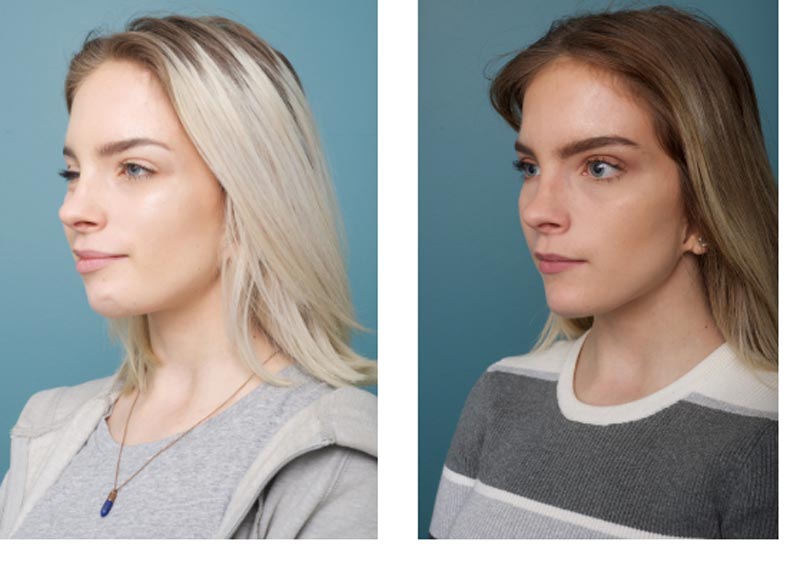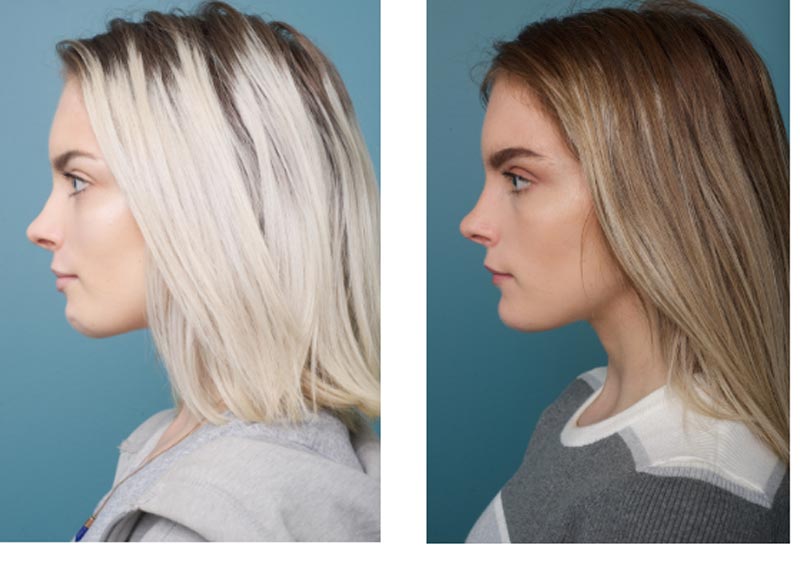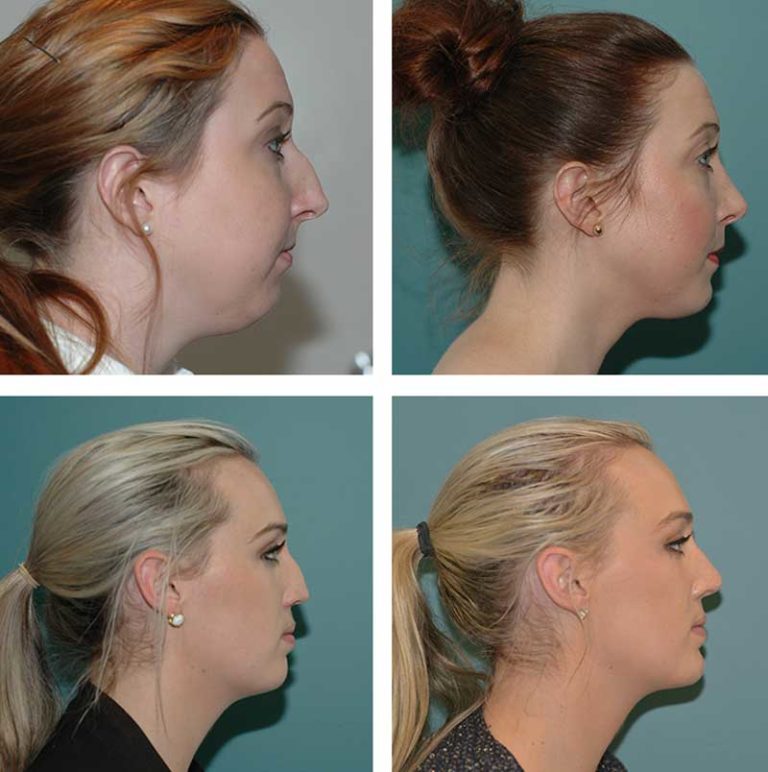Genioplasty (chin surgery) is a surgical procedure that involves reshaping or repositioning the chin. It can be done for aesthetic reasons or functional reasons, such as to correct a receding chin or jaw alignment issues.
At Ethicos Institute, our genioplasty procedures are designed to redefine your lower-facial area and facial balance and symmetry.
Dr Gillett offers two main types of Genioplasty:
1. Chin Augmentation (Implant or bone reshaping). This involves either placing a chin implant or reshaping the chin bone to create a more prominent chin. The implant is typically made from silicone or other materials, and the procedure can make the chin more defined or help balance your facial features.
2. Sliding Genioplasty: In this type of surgery, the chin bone is cut and repositioned to achieve the desired appearance. This is often used when there is a significant issue with chin projection or when a more permanent solution is needed.
A good candidate for genioplasty (chin surgery) is typically someone who wants to improve appearance of their chin. Your consultation with Dr Gillett is the ideal opportunity to assess your suitability.
The best candidates tend to:
In some cases of a retruding chin, patients may benefit more from advancing the lower jaw rather than just the chin. Dr Gillett will arrange for you to meet with an orthodontist to discuss alignment of the teeth before the jaw is advanced. Dr Gillett also regularly performs surgery to realign the jaws where required for developmental or acquired deformities. This may involve osteotomies of upper, lower or both jaws. This surgery is always done in conjunction with an orthodontist who will align the teeth both before and after surgery to give you the best possible result.
Dr Gillett will discuss your issues with you at your consultation and a plan will be organised as to which genioplasty would be best to give the best aesthetic and functional results for you.
Potential risks: as with any form of cosmetic surgery, chin surgery poses multiple potential risks including:



Sliding genioplasty
For sliding (or osseous) genioplasty procedures, the chin bone will be cut from the jaw and shifted to attain the structure required. It will be kept in place with screws and a metal plate. The details of the surgery are planned on the computer and a guide and plate manufactured in titanium to be sure that the chin is positioned according to the surgical plan.
If the chin is to be made longer, the bone will be reattached to the rest of the jaw with a gap between the two. Large gaps may need a bone graft from the hip.
In procedures to shorten the chin, bone will be removed, and the chin will be attached to the rest of the jaw.
General anaesthetic is used in the majority of genioplasty procedures, enabling you to remain comfortable during it.
This will be discussed well in advance, to set your mind at ease.
Genioplasty is often done at the same time as a rhinoplasty and is usually performed as a day case. However, an overnight stay could be required.
Patients will be put on a soft diet for the first week of recovery, to prevent the sutures being affected. You should rinse with Savacol twice daily for 4 days before surgery and 10 days after surgery.
Some swelling is to be expected. An elastic garment will be provided to help keep this under control. Pain medication should be prescribed to manage discomfort.
The majority of patients recover well enough to resume work and regular lifestyles after around two weeks.

As with any fo rm of cosmetic surgery, a genioplasty poses multiple potential risks, including:
All possible risks will be addressed during your consultation.


Your genioplasty consultation is your opportunity to ask Dr Gillett any questions and address concerns you might have.
He will go into great detail to ensure you understand what genioplasty involves, what its goals are, and which method is best suited to you. You will be able to make a fully informed decision and receive dedicated, personal service.
To find out more information about our treatments or to book in for a consultation with Dr Gillett call 08 9284 4966 or contact us by clicking here